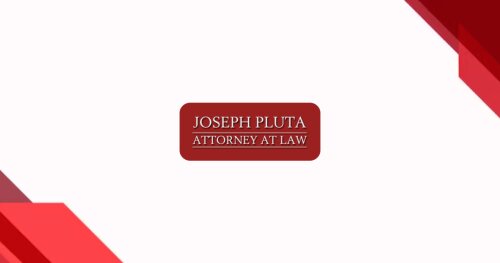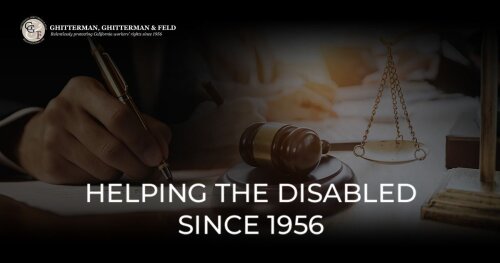Best Property Insurance Lawyers in Vermont
Share your needs with us, get contacted by law firms.
Free. Takes 2 min.
Or refine your search by selecting a city:
List of the best lawyers in Vermont, United States
About Property Insurance Law in Vermont, United States
Property insurance in Vermont helps homeowners, renters, and business owners safeguard their property against unexpected risks such as fire, theft, vandalism, or natural disasters. This type of insurance acts as a financial safety net, covering repair or replacement costs if covered damages occur. The law in Vermont governs how these policies are written, what kinds of coverage are available, and how disputes between policyholders and insurance companies are resolved. Understanding your rights and responsibilities under Vermont property insurance law can make a significant difference if you need to file a claim or resolve a disagreement.
Why You May Need a Lawyer
There are a variety of situations where working with a property insurance lawyer can be beneficial. For example:
- Your insurance claim is denied and you disagree with the insurer’s decision.
- You receive a settlement offer that is less than expected or does not cover your losses.
- The insurance company is delaying payment without clear reasons.
- You are facing complex policy language or exclusions that you do not understand.
- Your insurer alleges that you misrepresented facts or committed fraud.
- There is disagreement over the cause or extent of property damage.
- You believe the insurance company is acting in bad faith.
- You need help negotiating with the insurance company or appealing a decision.
Legal professionals can explain your policy, protect your rights, advocate on your behalf, and assist with claims, negotiations, or litigation.
Local Laws Overview
Vermont law closely regulates insurance carriers and their relationships with policyholders. The Vermont Department of Financial Regulation (DFR) oversees the insurance industry to ensure fair practices. Notable aspects of Vermont property insurance laws include:
- Regulation and Licensing: All property insurance companies must be licensed with the state and follow state insurance regulations.
- Claim Handling: Vermont law requires insurance companies to investigate and settle claims promptly and fairly. Unreasonable delays or underpayment can lead to legal action.
- Policy Language: Policies must use clear language. Ambiguous terms are often interpreted in favor of the insured.
- Replacement Cost vs. Actual Cash Value: Policies may pay the cost to replace damaged property or its depreciated value. Review your policy to know which applies.
- Appeals and Complaints: Vermont provides mechanisms for policyholders to appeal claim denials or file complaints with regulatory bodies.
- Disclosure Requirements: Insurers must clearly disclose policy terms, limitations, and exclusions at the time of sale and renewal.
Understanding these key points can help you make informed decisions and recognize when to seek legal advice.
Frequently Asked Questions
What does property insurance typically cover in Vermont?
Most policies cover damage caused by fire, wind, lightning, theft, vandalism, and certain water damage. However, coverage for floods and earthquakes usually requires separate policies or endorsements.
What is the difference between replacement cost and actual cash value coverage?
Replacement cost pays the amount needed to replace damaged property with new materials, while actual cash value subtracts depreciation for age and condition from the reimbursement.
What should I do if my claim is denied?
Review the denial letter and your policy, gather supporting documentation, and contact your insurer for clarification. If you still disagree, you may appeal within the company or seek help from the Vermont Department of Financial Regulation or an attorney.
How long do I have to file a property insurance claim in Vermont?
Time limits vary by policy, but most require claims to be filed as soon as possible after the loss. Check your policy for specific deadlines, and do not delay notifying your insurer.
Can my insurance company cancel my policy?
Insurers can cancel a policy for reasons such as nonpayment, material misrepresentation, or substantial increase in risk. Vermont laws require them to provide advance written notice and explain the reason for cancellation.
What is bad faith in property insurance?
Bad faith refers to an insurer's intentional failure to fulfill its obligations, such as wrongfully denying a claim, underpaying, or unnecessary delay in payment. Vermont law allows policyholders to take legal action against insurers acting in bad faith.
Are mold and water damage claims covered?
Coverage for mold and water damage depends on the policy language and the cause of the damage. Sudden and accidental water damage may be covered, but gradual leaks or flood damage often are not unless specifically included.
Do I need separate insurance for floods or earthquakes?
Yes, standard property insurance typically does not include flood or earthquake coverage. You may purchase these types of coverage as separate policies or endorsements.
Who regulates property insurance companies in Vermont?
The Vermont Department of Financial Regulation oversees insurance companies, investigates complaints, and ensures compliance with state law.
How can a lawyer help with my property insurance dispute?
A lawyer can review your policy, advise you of your rights, negotiate with your insurer on your behalf, help you navigate the appeals process, or represent you in court if necessary.
Additional Resources
- Vermont Department of Financial Regulation Insurance Division
- Vermont Legal Aid
- National Association of Insurance Commissioners (NAIC)
- Federal Emergency Management Agency (FEMA) for flood insurance
- Local bar associations for lawyer referrals
These organizations can provide information, support, and official complaint channels if you face issues with your property insurance.
Next Steps
If you are facing a property insurance issue in Vermont, consider taking these steps:
- Read your policy carefully and gather all correspondence with your insurer.
- Document all damages and losses, including photographs and receipts.
- Contact your insurer to follow up on claims or denials and request a detailed explanation for any adverse decision.
- If discussions stall, reach out to the Vermont Department of Financial Regulation or a local legal aid organization for guidance.
- Consult a qualified property insurance lawyer who knows Vermont law to discuss your options and protect your rights.
Being proactive and informed ensures the best chance of a successful outcome in your property insurance matter.
Lawzana helps you find the best lawyers and law firms in Vermont through a curated and pre-screened list of qualified legal professionals. Our platform offers rankings and detailed profiles of attorneys and law firms, allowing you to compare based on practice areas, including Property Insurance, experience, and client feedback.
Each profile includes a description of the firm's areas of practice, client reviews, team members and partners, year of establishment, spoken languages, office locations, contact information, social media presence, and any published articles or resources. Most firms on our platform speak English and are experienced in both local and international legal matters.
Get a quote from top-rated law firms in Vermont, United States — quickly, securely, and without unnecessary hassle.
Disclaimer:
The information provided on this page is for general informational purposes only and does not constitute legal advice. While we strive to ensure the accuracy and relevance of the content, legal information may change over time, and interpretations of the law can vary. You should always consult with a qualified legal professional for advice specific to your situation.
We disclaim all liability for actions taken or not taken based on the content of this page. If you believe any information is incorrect or outdated, please contact us, and we will review and update it where appropriate.
Browse property insurance law firms by city in Vermont
Refine your search by selecting a city.










